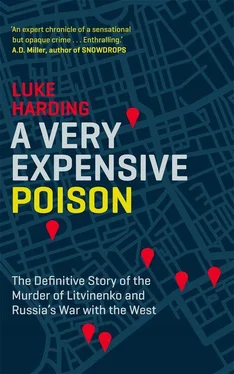In foreign affairs there is always a balance to be struck between national self-interest and values. There is Realpolitik versus Moralpolitik , with foreign-policy realists pitted against liberals who believe in universal rights. Under Cameron’s Conservative-led coalition, the UK’s foreign policy moved decisively towards the first camp. It showed new understanding towards regimes that had scant regard for human rights.
In theory, of course, London still believed in principles. The BBC’s political comedy Yes Minister expressed the gap between political reality and lofty aspiration well. The much-loved series features Jim Hacker as the well-meaning but inept prime minister and his Machiavellian cabinet secretary Sir Humphrey Appleby.
One exchange springs to mind:
JIM HACKER: Humphrey, are you saying that Britain should not support law and justice?
SIR HUMPHREY APPLEBY: Of course we should, prime minister. We just shouldn’t let it affect our foreign policy.
Twenty-first-century Britain was a post-imperial, postindustrial island of middling importance. Its role in the world was … what exactly? Unlike the US, it was no longer a superpower, though its government still nurtured the fantasy that Britain punched above its weight on the world stage. American observers noted that the UK was becoming increasingly parochial, and in many international questions looked mostly irrelevant.
Cameron’s foreign policy objective, meanwhile, was quite simple: to sell stuff to foreigners.
The large influx of Russians to Britain was good for business, the prime minister appears to have concluded. Wealthy Russians buy property in London and the Home Counties, send their children to British private schools, and go shopping in Harrods (and Selfridges). Increasingly, Russians come to the UK to settle their legal disputes, commercial and matrimonial. All this is a boon to headmasters, divorce lawyers, estate agents and purveyors of sushi.
Domestic political calculations explained Britain’s attempt at a US-style ‘reset’ with Moscow. Russian investment helped the UK economy. A strong economy in turn helped deliver the Conservatives’ election victory in 2015, after their failure in 2010 to win an outright majority. There were ideological commonalities, too. The right wing of the Tory party is Eurosceptic and wants Britain to exit the EU. The Kremlin is keen to torpedo EU power; it prefers to negotiate with weaker sovereign states.
In 2011, Cameron flew to Moscow. He met Medvedev and Putin. Then in summer 2012 – after Putin became president for the third time – Cameron hosted him in Downing Street and at the London Olympics. It was Putin’s first trip to the UK since 2005 and Litvinenko’s radioactive murder. They watched the judo, Putin’s favourite sport. The two leaders sat together, somewhat awkwardly, as contestants from Holland and the Czech Republic rolled around on a yellow mat.
The same month, guests attended a launch party in Kensington, west London, for a new organisation, the Conservative Friends of Russia. Some 250 guests gathered in the garden of the Russian ambassador, Alexander Yakovenko. They included Tory MPs, peers and Russian diplomats. The event featured a barbecue, drinks and a raffle, with prizes of vodka, champagne and a biography of Putin. The group was apparently the brainchild of a PR consultant, Richard Royal; its stated goal to boost UK–Russian dialogue.
Behind the scenes, the Russian embassy itself was pulling the strings on this curious new body. The diplomat in charge, Sergei Nalobin, has close links with Russian intelligence. His father, Nikolai Nalobin, was a KGB general. According to Marina Litvinenko, Nikolai Nalobin was Litvinenko’s former boss in the FSB. Nalobin Jnr’s brother worked as an FSB agent. Nalobin’s CV includes a stint in the ministry of foreign affairs. He described himself on his Twitter feed as a ‘brutal agent of the Putin dictatorship :)’.
Leaked emails from Nalobin suggest Moscow’s goals went beyond mere cultural understanding. The Kremlin was keen to rebuild ties with Britain post-Litvinenko and to mute criticism of Russia’s human-rights record. It also wanted to deepen an alliance with the Conservatives, who sit with Putin’s ruling United Russia party in the Council of Europe. Most of all, the Russian government was desperate to stop top officials from being denied entry to the UK, as part of a US-style ‘Magnitsky list’.
Critics pointed out that the timing of the organisation’s launch was dreadful. Days earlier, three members of the feminist collective Pussy Riot were jailed following an anti-Putin punk protest in Moscow’s Christ the Saviour cathedral. The former Labour Europe minister Denis MacShane noted: ‘Friendship groups with Russia used to be a speciality of the left in the days of communism. Now we have Putinism, it is the Tory party that is creating a pro-Russian group of fellow travellers. It reflects the shambolic incoherence of Tory networking.’
Sir Malcolm Rifkind, the group’s honorary president, took a different view, arguing that there was nothing wrong with engagement. ‘It would be silly to boycott everything Russian. Even during the Cold War, as a British foreign office minister, I had lunch with the Soviet ambassador in his residence. The worst thing is to have no contact.’ Three months later, however, Rifkind quit the group after its apparent links with Russian spies were uncovered by my exposé in the Guardian . The organisation collapsed, to be rebranded in 2013 as the Westminster Russia Forum.
Russia’s soft-power initiatives, which included hiring lobbyists in Washington, London and Brussels, may have seemed clumsy. In fact, they showed strategic ambition. From at least 2009, the Kremlin actively cultivated ties with the far right in eastern Europe. It established links with Hungary’s Jobbik, Slovakia’s People’s Party and Bulgaria’s nationalist, anti-EU Attack movement. The Kremlin wooed the far right in Western Europe too, loaning €9.4 million via a Moscow bank to France’s Front National.
It also attracted support from Europe’s far left. In Soviet times, the KGB used ‘active measures’ to sponsor front organisations in the west, including pro-Moscow communist parties. Radical left-wing coalitions such as Greece’s Syriza expressed solidarity with Moscow. So did Jeremy Corbyn, a backbencher and veteran anti-imperialist who in 2015 would go on to become leader of the opposition Labour Party. (The Russian embassy in London greeted the election of the anti-Nato Corbyn with an ecstatic press release.)
The Kremlin didn’t invent the European far right or British Euroscepticism or Corbyn. But in an analogous way Moscow was lending these parties and individuals support, political and sometimes financial. Moscow’s goal was to promote its economic and political interests – and in particular to ensure that the EU remains heavily dependent on Russian gas. The tactic was clever: to exploit popular dissent against the EU, fuelled by immigration and austerity.
* * *
Marina Litvinenko had always believed in British justice. The men who murdered her husband were beyond the reach of UK law enforcement and safely in Russia. But surely the legal system in London would afford her some kind of closure – a full, fair and transparent explanation of how her husband died and who might have killed him? It had been a long wait. Six years on, her private tragedy had become a public quest for some answers.
The most obvious vehicle for inquiry was an inquest. The inquest had been delayed in the hope that Moscow might give up Lugovoi and Kovtun. It was now evident there was no realistic prospect of a criminal trial. In autumn 2011, Marina Litvinenko moved to have the inquest – stalled since 2006 – reopened. In 2012, Sir Robert Owen, a High Court judge acting as assistant deputy coroner, convened a series of pre-inquest hearings in London. He began by apologising for the delay: ‘It’s manifestly in the interests of his widow Marina and his son, Anatoly … and in the wider public interest that [this] is brought to a conclusion.’
Читать дальше












